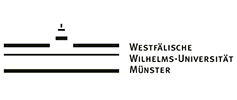A Comparative Perspective on Constitutional Complaint: Discussing Models, Procedures, and Decisions
DOI:
https://doi.org/10.31078/consrev514Keywords:
Comparative Law, Constitutional Complaint, Constitutional Court, Association of Asian Constitutional Courts and Equivalent InstitutionsAbstract
The constitutional complaint is one of the important constitutional court jurisdictions that can be described as a complaint or lawsuit filed by any person who deems his or her rights has been violating by act or omission of public authority. Currently, the constitutional court in many countries have adopted a constitutional complaint system in a variety of models. However, the first application of the constitutional complaint jurisdiction came from Europe. In Austria, the constitutional complaint is allowed against the administrative actions but not against the court decisions. While Germany and Spain have a similar model that is a complaint against an act of the public authority including court decisions. In Asia, it is imperative that the court in Asia actively participate in the Association of Asian Constitutional Courts and Equivalent Institutions (AACC). The AACC members have adopted a system of constitutional adjudication in a variety of models, and when it comes to jurisdictions, out of sixteen AACC members, there are four countries (Azerbaijan, South Korea, Thailand, and Turkey) have the constitutional complaint in their jurisdictions. In Azerbaijan, constitutional complaint is comparatively broad. Azerbaijan’s Constitutional Court can handle constitutional complaint against the normative legal act of the legislative and executive, an act of a municipality and the decisions of courts. In contrast, even though constitutional complaint in South Korea and Thailand can be against the exercise and non-exercise of state power, constitutional complaint cannot be filed against court decisions. In Turkey, the constitutional complaint mechanism is coupled with the regional system of human rights protection. The Turkish Constitutional Court handles complaints from individuals concerning violations of human rights and freedoms falling under the joint protection of the Turkish Constitution and the European Convention on Human Rights (ECHR). This paper argues that constitutional complaint represents the main part of the constitutional court, and through a comparative perspective among three countries in Europe and four AACC members are expected to provide lessons for the other AACC members that do not have a constitutional complaint mechanism, such as Indonesia.References
Cakmak, Cenap and Cengiz Dinc. “Constitutional Court: Its Limits to Shape Turkish Politics.” Insight Turkey 12, no. 4 (2010): 69-92.
Constitutional Court of Korea. Thirty Years of the Constitutional Court of Korea. Seoul: The Constitutional Court of Korea, 2018.
Constitutional Court of Korea. “AACC Member Fact File: Constitutional Court of Korea.” In The Jurisdictions and Organization of AACC members, edited by AACC SRD, 107-135. Seoul: AACC SRD, 2018.
Constitutional Court of Austria. “Brochure: the Constitutional Court of Austria.” Accessed August 22, 2018. https://www.vfgh.gv.at/verfassungsgerichtshof/ publikationen/information_material.en.html.
Constitutional Court of Turkey. “Introductory Booklet of the Constitutional Court of Turkey.” Accessed August 22, 2018. https://www.anayasa.gov.tr/en/publications/introductory-booklet/.
Constitutional Court of Spain. “Amparo (Appeal Constitutional Protection of Fundamental Rights).” Accessed August 22, 2018. https://www.tribunalconstitucional.es/en/tribunal/Composicion-Organizacion/competencias/Paginas/04-Recurso-de-amparo.aspx.
Constitutional Court of Azerbaijan. “AACC Member Fact File: Constitutional Court of Azerbaijan.” In The Jurisdictions and Organization of AACC members, edited by AACC SRD, 32-53. Seoul: AACC SRD, 2018.
Constitutional Court of Turkey. “AACC Member Fact File: Constitutional Court of Turkey.” In The Jurisdictions and Organization of AACC members, edited by AACC SRD, 208-301. Seoul: AACC SRD, 2018.
Dannemann, Gerhard. “Constitutional Complaints: The European Perspective.” The International and Comparative Law Quarterly 43, no. 1 (January 1994): 142-153.
Ekinci, Huseyin and Musa Saglam. Individual Application to the Turkish Constitutional Court. Ankara: The Constitutional Court of Turkey, 2015.
German Federal Constitutional Court. “How to Lodge the Constitutional Complaint.” Last Modified March 2018. Accessed August 22, 2018. https://www.bundesverfassungsgericht.de/EN/Homepage/_zielgruppeneinstieg/Merkblatt/Merkblatt_node.html.
German Federal Constitutional Court. “Annual Statistic 2018,” Published on February 2019. Accessed February, 22, 2019. https://www.bundesverfassungsgericht.de/SharedDocs/Downloads/EN/Statistik/statistics_2018.pdf?__blob=publicationFile&v=4.
Glaser, Henning. “Thai Constitutional Courts and the Political Order,” Seoul Law Journal 53, no. 2 (June 2012): 65-163.
Lee, Kang-Kook, “The Past and Future of Constitutional Adjudication in Korea.” In Current Issues in Korean Law, edited by Laurent Mayali and John Yoo, 1-13. California: Robbins Collection Publication School of Law University of California at Berkeley, 2014.
Palguna, I Dewa Gede. “Constitutional Complaint and the Protection of Citizens the Constitutional Rights.” Constitutional Review 3, no. 1, (May 2017): 1-23.
Patrono, Mario. “The Protection of Fundamental Rights by Constitutional Court – Comparative Perspective,” Victoria University of Wellington Law Review 31, no. 2, (May 2000): 410-426.
Srimoung, Sumaporn and Pitaksin Sivaroot. “The Organisation and Jurisdiction of the Constitutional Court of the Kingdom of Thailand.” Paper Presented at the AACC Research Conference, Mei 2018.
Tonsakulrungruang, Kemthong. “Development in Thai Constitutional Court.” In 2016 Global Review of Constitutional Law, edited by Richard Albert, David Landau, Pietro Faraguna, and Simon Drugda, 211-215. I.CONnect and the Clough Center for the Study of Constitutional Democracy at Boston College, 2017. http://www.iconnectblog.com/2017/08/now-available-thei%C2%B7connect-clough-center-2016-global-review-of-constitutional-law/.
Tsereteli, Nino. “Mechanism of Individual Complaints – Germany, Spanish and Hungarian Constitutional Court – Comparative Analysis.” LL.M Thesis, Central European University, Hungary, 2 April 2007.
Wittig, Caroline Elisabeth. “Ideological Values and their Impact on the Voting Behavior of Justices of the Federal Constitutional Court of Germany.” Thesis Master of Public Administration, Bowling Green State University, August 2009.
Yoon, Dae-Kyu. “The Constitutional Court System of Korea: The New Road for Constitutional Adjudication.” Journal of Korean Law 1, no. 2, (2001): 1-16.
Constitutional Court of Korea. Thirty Years of the Constitutional Court of Korea. Seoul: The Constitutional Court of Korea, 2018.
Constitutional Court of Korea. “AACC Member Fact File: Constitutional Court of Korea.” In The Jurisdictions and Organization of AACC members, edited by AACC SRD, 107-135. Seoul: AACC SRD, 2018.
Constitutional Court of Austria. “Brochure: the Constitutional Court of Austria.” Accessed August 22, 2018. https://www.vfgh.gv.at/verfassungsgerichtshof/ publikationen/information_material.en.html.
Constitutional Court of Turkey. “Introductory Booklet of the Constitutional Court of Turkey.” Accessed August 22, 2018. https://www.anayasa.gov.tr/en/publications/introductory-booklet/.
Constitutional Court of Spain. “Amparo (Appeal Constitutional Protection of Fundamental Rights).” Accessed August 22, 2018. https://www.tribunalconstitucional.es/en/tribunal/Composicion-Organizacion/competencias/Paginas/04-Recurso-de-amparo.aspx.
Constitutional Court of Azerbaijan. “AACC Member Fact File: Constitutional Court of Azerbaijan.” In The Jurisdictions and Organization of AACC members, edited by AACC SRD, 32-53. Seoul: AACC SRD, 2018.
Constitutional Court of Turkey. “AACC Member Fact File: Constitutional Court of Turkey.” In The Jurisdictions and Organization of AACC members, edited by AACC SRD, 208-301. Seoul: AACC SRD, 2018.
Dannemann, Gerhard. “Constitutional Complaints: The European Perspective.” The International and Comparative Law Quarterly 43, no. 1 (January 1994): 142-153.
Ekinci, Huseyin and Musa Saglam. Individual Application to the Turkish Constitutional Court. Ankara: The Constitutional Court of Turkey, 2015.
German Federal Constitutional Court. “How to Lodge the Constitutional Complaint.” Last Modified March 2018. Accessed August 22, 2018. https://www.bundesverfassungsgericht.de/EN/Homepage/_zielgruppeneinstieg/Merkblatt/Merkblatt_node.html.
German Federal Constitutional Court. “Annual Statistic 2018,” Published on February 2019. Accessed February, 22, 2019. https://www.bundesverfassungsgericht.de/SharedDocs/Downloads/EN/Statistik/statistics_2018.pdf?__blob=publicationFile&v=4.
Glaser, Henning. “Thai Constitutional Courts and the Political Order,” Seoul Law Journal 53, no. 2 (June 2012): 65-163.
Lee, Kang-Kook, “The Past and Future of Constitutional Adjudication in Korea.” In Current Issues in Korean Law, edited by Laurent Mayali and John Yoo, 1-13. California: Robbins Collection Publication School of Law University of California at Berkeley, 2014.
Palguna, I Dewa Gede. “Constitutional Complaint and the Protection of Citizens the Constitutional Rights.” Constitutional Review 3, no. 1, (May 2017): 1-23.
Patrono, Mario. “The Protection of Fundamental Rights by Constitutional Court – Comparative Perspective,” Victoria University of Wellington Law Review 31, no. 2, (May 2000): 410-426.
Srimoung, Sumaporn and Pitaksin Sivaroot. “The Organisation and Jurisdiction of the Constitutional Court of the Kingdom of Thailand.” Paper Presented at the AACC Research Conference, Mei 2018.
Tonsakulrungruang, Kemthong. “Development in Thai Constitutional Court.” In 2016 Global Review of Constitutional Law, edited by Richard Albert, David Landau, Pietro Faraguna, and Simon Drugda, 211-215. I.CONnect and the Clough Center for the Study of Constitutional Democracy at Boston College, 2017. http://www.iconnectblog.com/2017/08/now-available-thei%C2%B7connect-clough-center-2016-global-review-of-constitutional-law/.
Tsereteli, Nino. “Mechanism of Individual Complaints – Germany, Spanish and Hungarian Constitutional Court – Comparative Analysis.” LL.M Thesis, Central European University, Hungary, 2 April 2007.
Wittig, Caroline Elisabeth. “Ideological Values and their Impact on the Voting Behavior of Justices of the Federal Constitutional Court of Germany.” Thesis Master of Public Administration, Bowling Green State University, August 2009.
Yoon, Dae-Kyu. “The Constitutional Court System of Korea: The New Road for Constitutional Adjudication.” Journal of Korean Law 1, no. 2, (2001): 1-16.
Downloads
Published
2019-05-31
How to Cite
Chakim, M. L. (2019). A Comparative Perspective on Constitutional Complaint: Discussing Models, Procedures, and Decisions. Constitutional Review, 5(1), 096–133. https://doi.org/10.31078/consrev514
Issue
Section
Articles
































































